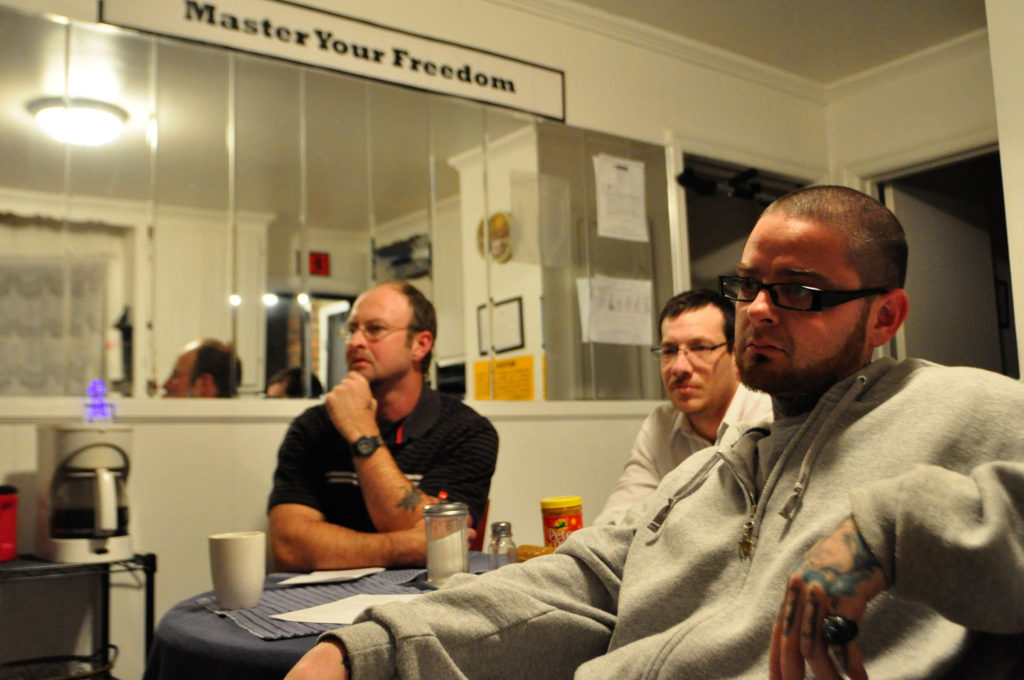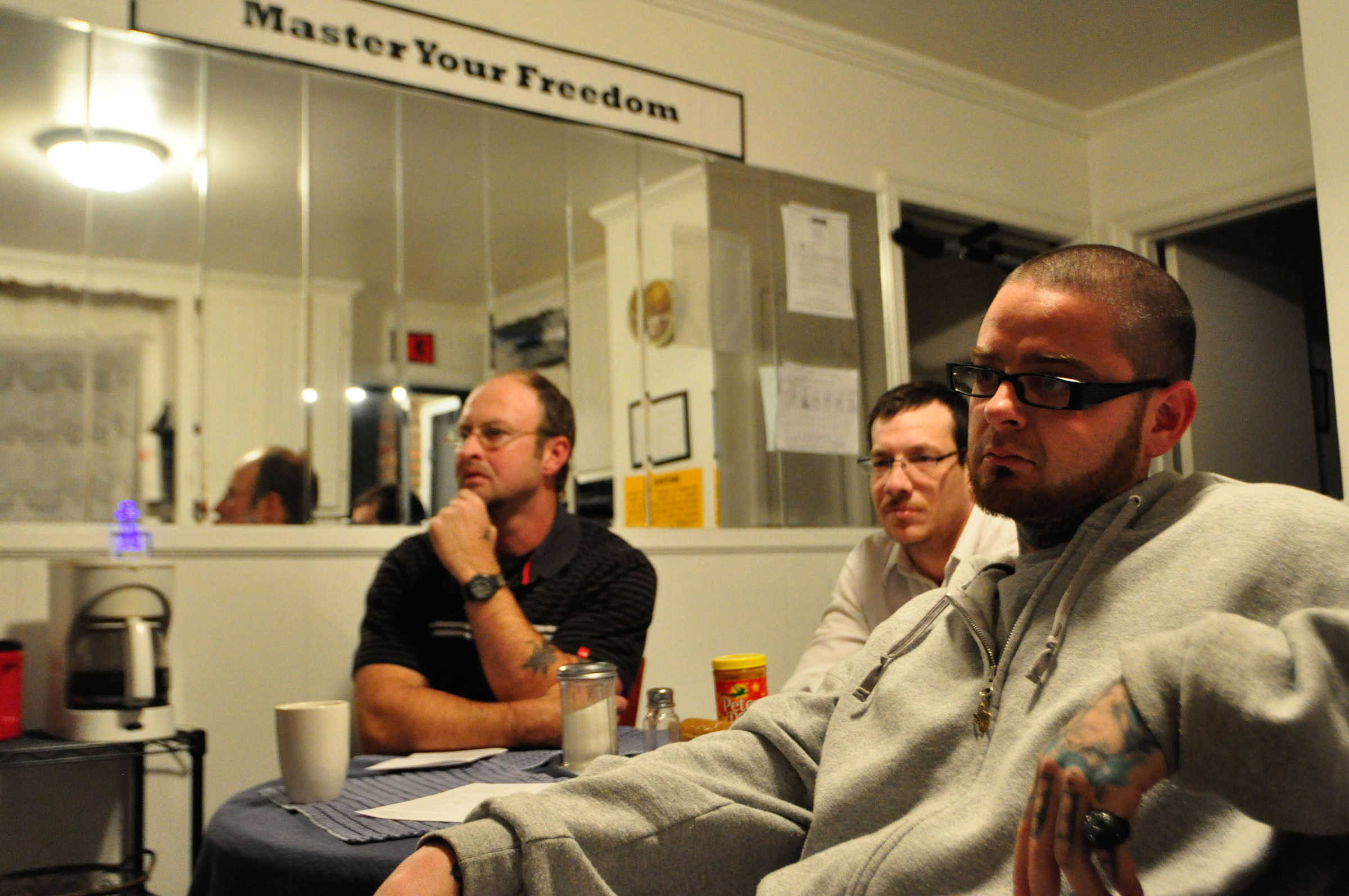
WASHINGTON (CNS) — Mark Walters, one of the staff members of the Vincentian Reentry Organizing Project in New Orleans, confessed that he had “never been an organizer in terms of community organizing.”
“But I organized a lot of drug dealers,” he added.
[quote_box_right]Follow the Reentry Organizing Project on Facebook[/quote_box_right]
Walters is far from the only ex-convict — now thought of as a “returning citizen” — brought in by the Society of St. Vincent de Paul for its Vincentian Reentry Organizing Project, which now operates in five states — Wisconsin, Massachusetts, Ohio, Florida and Louisiana — with the help of a grant from the Catholic Campaign for Human Development, the U.S. bishops’ domestic anti-poverty program.
The point of the project, according to Paul Graham, the project’s national coordinator, is to make former prisoners’ “re-entry into the community more viable, so fathers can get good jobs and support families,” and thus reduce recidivism rates.
The project, which started in 2013, is too new to tout recidivism figures, Graham told Catholic News Service Feb. 10.
But Walters, speaking about the project during a Feb. 8 workshop at the Catholic Social Ministry Gathering, said prisoners, once released, are poorly equipped to shake off the conditions that led them to commit the crimes which put them in jail in the first place.
As for him, he recalled when he was promoting the project at St. David Church in New Orleans and a 14-year-old boy asked him what he called “a plain-Jane question”: “How did you stay out?”
Walters said he answered “God,” but he admitted later there was more to it than that. “I got tired. People are tired when they get out. They want to do something else. But there are so many barriers.”
One of the biggest barriers is in job applications asking whether the applicant has ever committed a felony. Answer truthfully, Walters said, and employers “look at the paperwork, not at the person.” But lie, though, and applicants risk getting caught: “We figured you to be a liar,” is a typical response, he said.
[quote_box_right]
Articles on prison outreach, re-entry
- Second chance act
- Former prisoners move to Dismas House
- Pope’s words give inmates hope
- Women inmates on prison ministry
- Death-row inmates ‘join’ parish
[/quote_box_right]
Benito Vega, Massachusetts state coordinator for the project and himself a former prison inmate, said the stigma of being an ex-offender remains well after the onetime felon has moved on with his life.
He recalled a time when he was falsely accused of armed robbery and arrested for the crime. The district attorney, “when I walked in the courtroom, he said, ‘He’s our guy.’ I had a rap sheet. They already convicted me because of my past.”
Vega said, “They want to jail us on child support payments we can’t make because we can’t get a job.”
Graham, at the workshop, said the state of Ohio once gave a grant to a private firm to train returning citizens on how to become a certified nursing assistant. The firm took the money and trained the former convicts, even though state law at the time banned felons from holding that job.
Graham told CNS that there are about 100 returning citizens like Vega and Walters helping about 600 newly released prisoners through the project. Of those 600, many of them come into contact with St. Vincent de Paul not because they know about the project, but because they visited one of the society’s thrift stores and have sought help.
[quote_box_right]
Shop
[/quote_box_right]
“If incarceration rates stayed the same as in 1980, we would have 20 percent less poverty,” said the 2014 report of the Vincentian Reentry Organizing Project.
“Our organizing model is driven by Catholic social teaching,” the report added. “We are prioritizing the preferential option for the poor, and exercising our power as Vincentians to act in solidarity. Our focus is to invest in the leadership and organizing power of formerly incarcerated men and women.
“By listening, supporting and engaging returning citizens as the core of our work, we develop stronger relationships and more compelling and inspired efforts.”
— By Mark Pattison, Catholic News Service.







